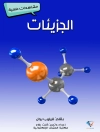The understanding of the structure, recognition, and function of carbohydrates and glycoconjugates remains crucial in diverse areas at the interface of biology, chemistry and biotechnology and is driving innovation in biomedical and material sciences. This new volume contains original work and critical reviews covering the current state-of-the-art and scientific advances in carbohydrate research and demonstrates cross-disciplinary areas within the field of glycosciences. Most of the chapters are contributions from speakers of the 14th International Meeting of the Portuguese Carbohydrate Group – GLUPOR 14, held in Caparica, Lisbon in January 2023. GLUPOR international meetings have a long history, with the first taking place in Lisbon in 1995 organized by Professor Amélia Pilar Rauter and resulting from the foundation of the Portuguese Carbohydrate Group of the Portuguese Chemical Society. Following the first meeting, GLUPOR has been held every two years providing a unique opportunity to strengthen collaborations and opening new directives for the carbohydrate community.
The topics in Volume 46 cover current methods for stereoselective synthesis of carbohydrates, technologies for increasing the efficiency of glycosylation reactions, value-added carbohydrate-based materials towards more sustainable approaches, molecular recognition and structural-based approaches and bioinformatics to understand microbe–host interactions and to develop new applications in biotechnology and tools in the glycosciences. This set of reports will certainly benefit any researcher who wishes to learn about the latest developments in the carbohydrate field from basic to applied research.
สารบัญ
CBMcarb-DB: interface of the three-dimensional landscape of carbohydrate-binding modules;Recent advances in stereoselective 1, 2-cis-glycosylation;Enabling technologies applied to glycosylation;Sonogashira cross-coupling strategies towards nucleosides and analogues;Gold nanocatalysed oxidation of free carbohydrates;Polysaccharide-based films for food packaging application: the impact of carbon nanocomposites;Brewer’s yeast cell wall polysaccharides and their recognition by the innate immune system;The bacterial toolkit for glycan recognition in the human gut
เกี่ยวกับผู้แต่ง
Dr Yves Queneau, Research Director at CNRS, is Head of the Organic and Bioorganic Chemistry Laboratory at INSA Lyon, Deputy-Director of the “Institut de Chimie et Biochimie Moléculaires et Supramoléculaires” (ICBMS), University of Lyon, France and Honorary Professor at the University of Hull, UK. After his doctorate on aqueous Diels-Alder reactions involving glycodienes under the supervision of Professor André Lubineau (Orsay, 1988) he was appointed as CNRS fellow and worked on cycloaddition reactions towards complex sugars. He then spent one year in 1992 in Professor Samuel J. Danishefsky’s group in Memorial Sloan Kettering Cancer Center in New York, USA. He later moved to Lyon in a mixed CNRS-industrial research facility dedicated to sucrose chemistry (1995-2003) before joining its present position where he develops his research in organic and biological chemistry with a particular interest for the use of carbohydrates as renewable raw materials.












